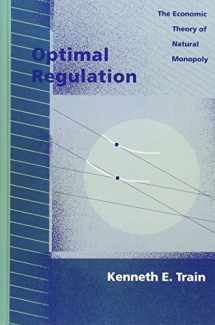
Optimal Regulation: The Economic Theory of Natural Monopoly
Book details
Summary
Description
Optimal Regulation addresses the central issue of regulatory economics - how to regulate firms in a way that induces them to produce and price "optimally." It synthesizes the major findings of an extensive theoretical literature on what constitutes optimality in various situations and which regulatory mechanisms can be used to achieve it. It is the first text to provide a unified, modern, and nontechnical treatment of the field. The book includes models for regulating optimal output, tariffs, and surplus subsidy schemes, and presents all of the material graphically, with clear explanations of often highly technical topics.
Topics include
The cost structure of natural monopoly (economies of scale and scope) • Characterization of firstand second-best optimality • Surplus subsidy schemes for attaining first-best optimality • Ramsey prices and the Vogelsang-Finsinger mechanism for attaining them • Time-ofuse (TOU) prices and Riordan's mechanisms for attaining the optimal TOU prices' Multipart and self-selecting tariffs, and Sibley's method for using self-selecting tariffs to achieve optimality • The Averch-Johnson model of how rate-of-return regulation induces inefficiencies • Analysis of regulation based on the firm's return on Output, costs, or sales • Price-cap regulation • Regulatory treatment of uncertainty and its impact on the firm's behavior • Methods of attaining optimality without direct regulation (contestability, auctioning the monopoly franchise.)


We would LOVE it if you could help us and other readers by reviewing the book
Book review



